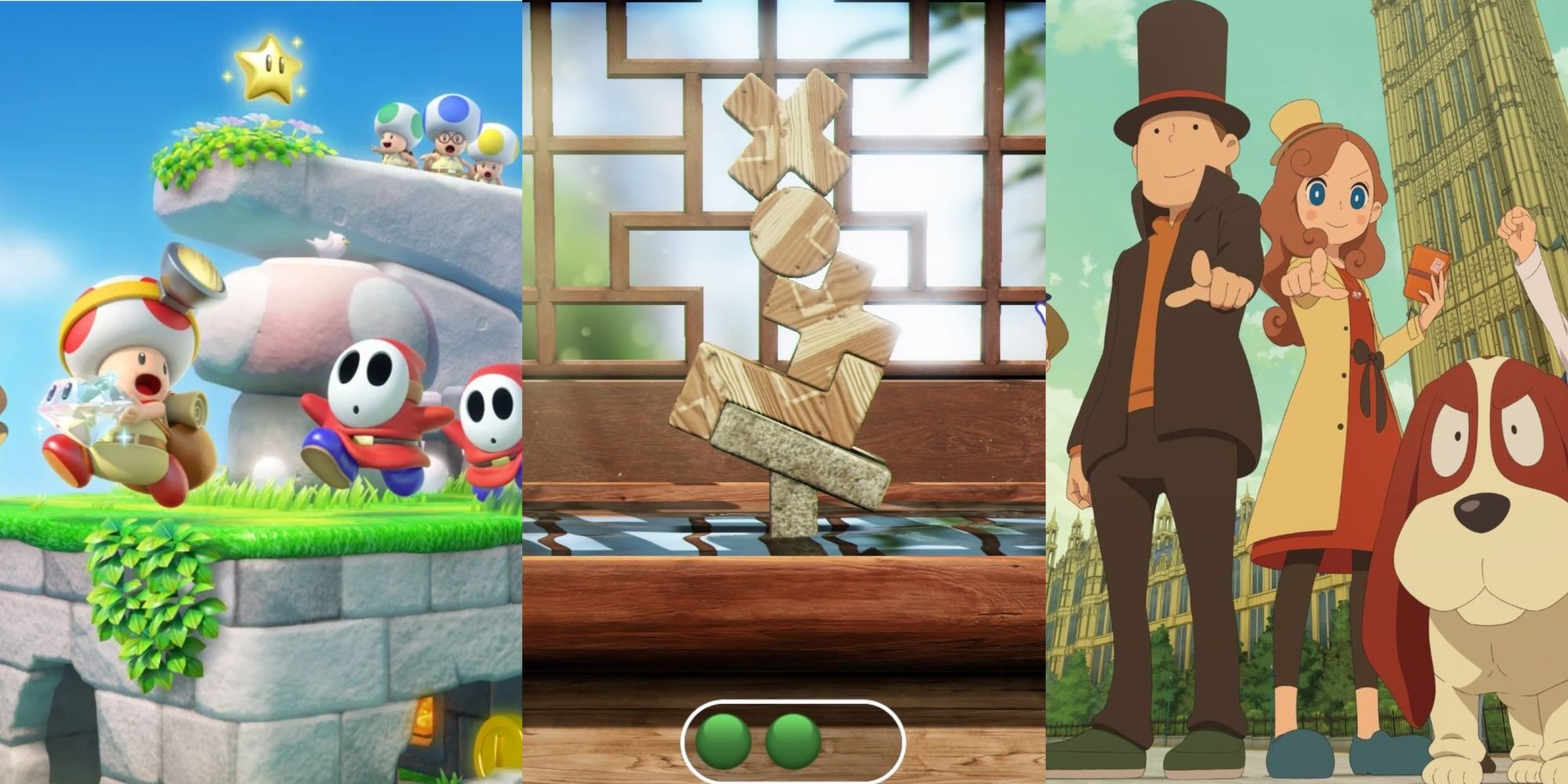Unlock Your Mind's Potential With Testing Problem Games
Challenging problem video games present an appealing chance for boosting cognitive feature and psychological acuity. These brain-teasers, varying from logic-based quandaries to detailed jigsaw problems, not just offer amusement however also stimulate important thinking and develop problem-solving skills. The true impact of these games on cognitive advancement may prolong much beyond mere amusement.
Benefits of Challenge Games
Engaging in problem games supplies a plethora of cognitive advantages that expand beyond mere enjoyment. This is attained via pattern acknowledgment and the mental adjustment of concepts and shapes, which are crucial elements of many problems.
In addition, challenge video games improve concentration and focus to detail. As gamers immerse themselves in addressing intricate issues, they create the capability to focus for extensive durations, a skill that is transferable to real-world circumstances. Furthermore, problems typically need a strategic approach, promoting vital thinking and the ability to evaluate circumstances from numerous point of views.

Types of Testing Problems
Challenge video games come in a diverse selection of types, each offering special obstacles that satisfy different cognitive abilities. These puzzles range from the conventional to the modern-day, appealing gamers in different means. One of the most popular types is the logic problem, such as Sudoku, which requires deductive reasoning and pattern recognition. These problems test the player to fill up in missing aspects based upon offered restraints, cultivating essential reasoning.
One more category is the jigsaw puzzle, which use spatial recognition and aesthetic perception. By assembling small segments to create a total picture, gamers improve their capability to visualize and revolve items mentally. Crossword challenges, on the other hand, are language-based, challenging people to recall vocabulary and synonyms, thereby working out spoken abilities and memory.
In addition, there are mechanical puzzles, like the Rubik's Cube, which require tactical planning and hand-eye control. These puzzles call for a sequence of actions to get to the desired outcome, encouraging players to think several steps ahead. Additionally, digital challenges, such as getaway area games, integrate different aspects of logic, spatial reasoning, and teamwork in a virtual atmosphere, providing a comprehensive difficulty that boosts numerous cognitive faculties all at once.
Improving Cognitive Skills
The advantages of challenge video games extend beyond amusement, offering as important devices for improving cognitive abilities. Challenge games need gamers to assume critically and tactically, cultivating an atmosphere where abstract reasoning is essential.
Furthermore, problem video games play a crucial role in enhancing memory retention. Many puzzles, like Sudoku or crosswords, demand that gamers recall specific information or use previously discovered approaches to address them. This method thus enhances the brain's ability to store and retrieve info more successfully. Additionally, puzzles typically demand sustained attention and emphasis, which can enhance concentration skills in time. This intense focus to information is advantageous not only within the context of pc gaming but additionally in real-world scenarios requiring precision and precision.
In addition, the analytical aspect of puzzles motivates creativity, as players discover to come close to difficulties from different angles. This skill is specifically indispensable in vibrant workplace, where cutting-edge remedies are typically called for. Generally, problem games are instrumental in promoting a sharper, a lot more dexterous mind.
Picking the Right Game
Selecting Homepage the ideal problem video game is vital for maximizing cognitive advantages. Different puzzle video games target different cognitive abilities, such as analytic, memory, spatial reasoning, or sensible reasoning.

Additionally, considering your personal rate of interests can sustain motivation and involvement, which are important for lasting cognitive advancement. A game that aligns with your pastimes or enthusiasms will likely hold your passion much longer, making certain constant cognitive workout. Ultimately, picking a video game that straightens with both cognitive purposes and individual interests will produce the most valuable results, fostering a effective and interesting psychological exercise.
Tips for Maximizing Advantages
Uniformity is vital; normal engagement with challenge video games can lead to sustained cognitive benefits. Branching out the kinds of puzzles you play-- such as crosswords, Sudoku, or reasoning problems-- boosts various cognitive skills and avoids mental torpidity.
Additionally, gradually increase the trouble degree of the problems. Starting with less complex puzzles and progressively taking on even more difficult ones can improve analytic skills and cognitive strength. It is additionally advantageous to take part in reflective technique; after finishing a problem, take a moment to assess the techniques you employed and think about alternative strategies. This reflection can deepen your understanding and improve future performance.

Verdict
Incorporating difficult challenge games go now right into daily routines offers significant cognitive benefits, improving mental skill and problem-solving capabilities. By engaging routinely with a selection of puzzles, such as logic crosswords, video games, and jigsaws, people can improve memory retention and vital thinking skills.
Testing challenge games provide an interesting opportunity for improving cognitive feature and mental acuity.Puzzle games come in a varied array of types, each offering special difficulties that cater to various cognitive abilities.The benefits of problem video games prolong past enjoyment, serving as useful tools for boosting cognitive abilities. Different problem games target different cognitive skills, such as problem-solving, memory, spatial reasoning, or logical reasoning. Diversifying the kinds of problems you play-- such as crosswords, Sudoku, or reasoning problems-- boosts various cognitive abilities and stops mental stagnancy.